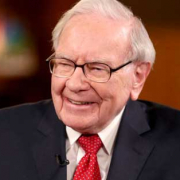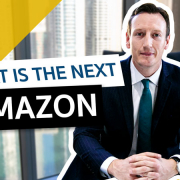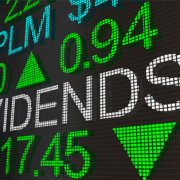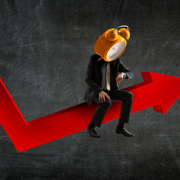Bottom Line Up Front:
- Learn. Learn from 2020. How has your portfolio behaved so far and how did it make you feel? Volatility is to be expected with investing – but how much of it can you cope with?
- Review. Speak to your advisor and if the answer to point 1 was ‘it made me lose sleep at night’ then discuss whether you need to change things moving forward.
- Where now? Has the answer ever been any different for medium to long term thinkers?
- Opportunity. Don’t waste them. Keep some powder dry and be confident to use downturns to your advantage (easy to say and difficult to do).
The last few months have undoubtedly changed a monumental number of things that we used to do as part of the daily routine. The commute to work may well now be less frequent going forward as more and more firms realise that their staff are efficient from home. Meetings via platforms such as Zoom or Teams are the new normal potentially reducing business travel in the future. All of us got used to shopping for groceries as well as other items on line whereas previously we may have preferred to go to the store.
Who would want to be investing into city center corporate real estate at the moment? Will we see the architecture of cities change as they could feasibly become ‘fatter and flatter’ due to the requirement to go to the office less, if at all? Will offices become null and void altogether with people instead adopting a ‘shared space’ type of environment where they utilize the space for a far shorter period of time if they need to?
So where would you want to invest?
The below has been taken from an article relating to the CEO of Microsoft:
During the COVID-19 epidemic, Nadella has taken to calling the tech giant’s workforce “digital first responders.” The company’s developers and cloud experts are working side-by-side with organizations including the CDC, John Hopkins University of Medicine, state unemployment centers, retailers, and schools. Institutions “have gone through two years’ worth of digital transformation in two months,” says Nadella. “We were seeing the other side of it which is the peak demand on our infrastructure.”
So should any of this impact how or why or when we invest? Not really in my view. No human has ever been able to predict the future, albeit we can open our eyes and look to what sectors we think may fair better in certain conditions. Areas such as Cyber Security, Robotics and Automation, FinTech etc are all reasonably topical at the moment and would generally fall under the ‘tech’ umbrella. ETFs/Mutual Funds that track those sectors have grown exponentially this year. That said, great fund managers have always been good at selecting the best individual stocks so continue to let them do that and ETFs generally allow access to an index which will ‘autocorrect’ anyway ie as one stock gets larger it takes a bigger slice of the pie or if one company goes bust the next one on the list jumps into the index.
The general feeling at the moment seems to be that the market as a whole has had a poor year, the recovery since March is inexplicable and that the market will fall from here due to an inevitable second wave of Covid 19. The reality is, however, that certain companies/sectors within ‘the market’ have generated huge returns in 2020 so far and, in fact, the S&P 500 now sits only circa 1% off it’s February high.
The question, however, is would you have predicted that in January? The answer is of course that you would have been unlikely to have done so. Going forward, where would you invest? Again, this is going to be dictated by your risk profile more than your ability to predict the future.
The situation has not changed from an investment perspective, it never has. Use great fund managers and allow them to do their job. Offset this by using great ETFs to gain whole of market exposure which should never fail and ensure that there is sufficient fixed income/commodity exposure throughout to keep the volatility within a range that you feel comfortable with.
Ocado says switch to online shopping is permanent
By Simon Read, Business reporter
Online grocer Ocado says the switch to internet shopping amid the coronavirus lockdown has led to a “permanent redrawing” of the retail landscape.
Its comments came as it said sales during the first half of 2020 jumped 27% to more than £1bn.
“The world as we know it has changed,” said chief executive Tim Steiner.
“As a result of Covid-19, we have seen years of growth in the online grocery market condensed into a matter of months; and we won’t be going back.”
“We are confident that accelerated growth in the online channel will continue, leading to a permanent redrawing of the landscape of the grocery industry worldwide.”
He said Ocado was now the fastest growing grocer in the UK, thanks to a 50/50 partnership with Marks and Spencer announced last year.
As part of the deal, which saw M&S take a half-share in Ocado’s retail business, Ocado will start delivering M&S grocery products from September, when its current deal with Waitrose expires.
The group reported a loss before tax of £40.6m in the six months to the end of May, blaming an increase in investment to handle the higher demand generated as a result of the coronavirus pandemic.
During the period the company opened its first two customer fulfilment centres abroad, for Casino in France and Sobeys in Canada, while increasing capacity in the UK.
- Retailers report sales jump in June
The loss was smaller than the £147.4m posted in the same period last year, although that figure included £99m of costs incurred as a result of a major fire at its warehouse in Andover.
But after raising £1bn through an equity and bond issue last month, Ocado said it had £2.3bn in cash on its balance sheet.
“There is evidence to suggest many shoppers will likely continue buying their groceries online once lockdown measures have been lifted completely, but it will be difficult for Ocado to maintain the sales registered at the peak of the crisis,” said John Moore, senior investment manager at Brewin Dolphin.
“Nevertheless, Ocado has a strong balance sheet and the Covid-19 pandemic has super-accelerated many of the trends that have led to its exceptional share price growth over the last few years, placing the company in a good position for the future.”
A new Lidl a week
Separately, discount grocer Lidl has revealed plans to open a shop a week until Christmas, creating 1,000 jobs.
The 25 new stores will be opened across England, Scotland and Wales with sites in Selhurst, Harrow Weald, Coleford and Llandudno Junction opening in the coming weeks.
By the end of 2023 it plans another 100 stores across Britain, creating 4,000 more jobs, and bringing its total number of shops to 1,000.
“It is testament to the continued hard work of our colleagues that we are able to continue forging ahead with our expansion plans, despite the challenging circumstances that have been faced over the past months,” said Lidl GB boss Christian Härtnagel.
Lidl – which opened its first shops in the UK in 1994 – has opened new stores throughout the pandemic in locations such as Birmingham, Torquay and across London.






